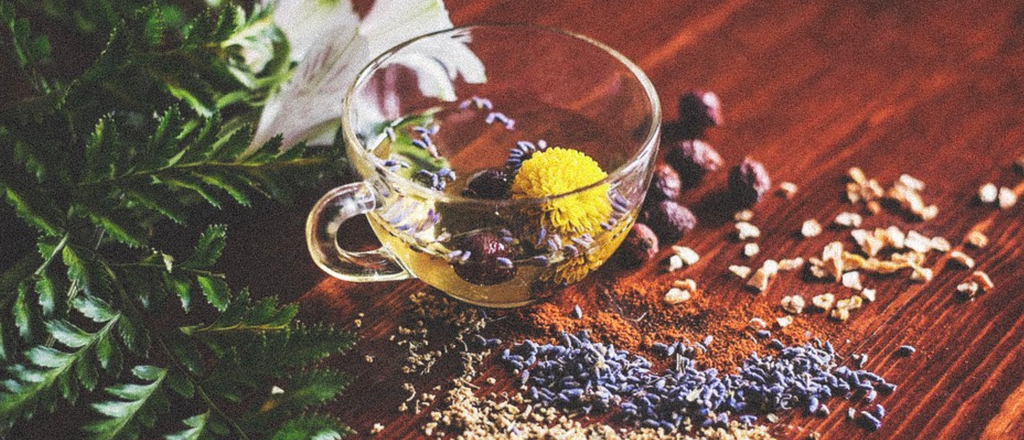Your Cart is Empty
11 26, 2018 3 min read

With the winter solstice only one week behind us it’s time to tuck in our toes and tune in our tummies to adapt and thrive through the darkest time of year. Short intro to Ayurveda: In very basic terms Ayurveda divides everything into three primary ‘doshas’ or ‘predispositions’ which are ‘Vatta’ meaning ‘air’, ‘pitta’ meaning ‘fire’ and ‘kapha’ meaning ‘earth’. Winter is a predominantly ‘Kapha’ season, and if we don’t eat and live to balance this heavy dosha we can end up sluggish, mucusy and sick. Thankfully Ayurveda’s remedies happen to include seasonal produce and ancient ways of eating that end up saving you money and time; nature does tend to hold the answers, after all. So, here are 5 ways to support yourself in winter using Ayurvedic knowledge: 1. Drink Yogi Bhajan’s Chai Tea: Yogi Bhajan was the miraculous man who brought the sacred science of Kundalini yoga to the west, also introducing his famous ‘yogi tea’. This spicy blend of black pepper, clove, ginger, cinnamon and cardamom fuels digestive fire (or ‘agni’, in Ayurvedic terms) and keeps your Kapha in check. Find the full recipe here (simply substitute almond mylk) or visit GuruRamDas Kundalini studio in town. They always have a batch on the brew and sell their own packaged blend of this energizing elixir. 2. Eat Fermented Foods: Decades ago, the only way for humans to survive the barren frosty months was to preserve food during more abundant times of the year. Fermentation was one way of doing this, while also packing an immune-boosting punch of probiotics essential for fighting off the flu. Vegan broth, Kimchi and kombucha are great ways of incorporating ferments into your diet. 3. Eat Plenty of Root Vegetables & Fatty Acids: The dry, chilly winter air can also aggravate our ‘Vatta’ dosha, leading to dry skin, constipation and anxiety. By including heavier root vegetables such as sweet potatoes, beets, carrots and squashes we are able to remain grounded and warm. Including extra fats such as nut and seed oils is especially useful if the air is dry. 4. Eat Additional Plant Protein: By adding protein such as seeds, spirulina and sprouts we are able to gain those extra few pounds that help insulate us against the icy chill. 5. Practise Abhyanga: Abhygaya is the ancient Ayurvedic practice of sesame oil massage. Traditionally performed by two practitioners, this is a welcome winter gift you can give yourself which will soothe the mental and physical effects of excess vata. Light a few candles, flick the heater on and lather yourself in the silky sesame goodness. If all else fails, just pop in to Nourish’d for any number of winter-warming specials, crunchy kimchi rainbow bowls or just a sunny smile.
The 28th of June also marked the annual Strawberry Moon, named by the Native American Algonquin tribes, which indicates the mid-point of the year and the start of the harvest season in the northern hemisphere. For those of us in the southern hemisphere, this moon-message encourages us to hibernate, rest and recuperate so that we’re ready for the sowing of seeds in spring.
Unfortunately many modern humans are overworked, undernourish’d and out of synch with this natural seasonal cycle; ending up rundown and sickly during a time which should be spent in deep rest and relaxation.
Luckily the ancient yogic science of Ayurveda has a whole host of advice on how we should be eating, and living, to stay healthy come hell or cold water.
Love,
Nourish’d
Sign up to get the latest on sales, new releases and more …